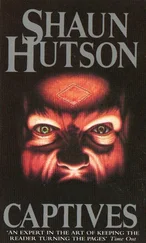Norman Manea - Captives
Здесь есть возможность читать онлайн «Norman Manea - Captives» весь текст электронной книги совершенно бесплатно (целиком полную версию без сокращений). В некоторых случаях можно слушать аудио, скачать через торрент в формате fb2 и присутствует краткое содержание. Год выпуска: 2014, Издательство: New Directions, Жанр: Современная проза, на английском языке. Описание произведения, (предисловие) а так же отзывы посетителей доступны на портале библиотеки ЛибКат.
- Название:Captives
- Автор:
- Издательство:New Directions
- Жанр:
- Год:2014
- ISBN:нет данных
- Рейтинг книги:3 / 5. Голосов: 1
-
Избранное:Добавить в избранное
- Отзывы:
-
Ваша оценка:
- 60
- 1
- 2
- 3
- 4
- 5
Captives: краткое содержание, описание и аннотация
Предлагаем к чтению аннотацию, описание, краткое содержание или предисловие (зависит от того, что написал сам автор книги «Captives»). Если вы не нашли необходимую информацию о книге — напишите в комментариях, мы постараемся отыскать её.
Captives
This is a moving account of a country shaken by communism and anti-Semitism and haunted by recent atrocities, from "a distinguished writer whose vision of totalitarianism is close to Kafka's cloudy menace, universal yet internalized" (Richard Eder,
).
Captives — читать онлайн бесплатно полную книгу (весь текст) целиком
Ниже представлен текст книги, разбитый по страницам. Система сохранения места последней прочитанной страницы, позволяет с удобством читать онлайн бесплатно книгу «Captives», без необходимости каждый раз заново искать на чём Вы остановились. Поставьте закладку, и сможете в любой момент перейти на страницу, на которой закончили чтение.
Интервал:
Закладка:
My Dear Tibi,
There are fires and fires and fires. Some smolder, others consume everything that stands in their way, all at once. The fire in the mountains — when I missed you so, although you’d hurt me badly and I forgave you — was never consuming. It burned intermittently, without storms, and it illuminated my life in a way that was magical, like a fairy tale, if you please, but ephemerally. I was without it once for four months, once for six, sometimes being on the way to believing that it had gone out for good. It never gave the sensation of consuming me more and more powerfully. So you see, the memories that link me to Dănu are stretched over five trimesters, but sporadic ones.
The words “prosaic but true” and “like a fairy tale” are circled in red pencil.
February 28
My Dear Dănuţ,
Voila! — the time has finally come for the long-projected letter! The high snowdrifts through which winter howled like a wolf begin to melt: proof that nothing of what is noble and sweet can die. Is it really necessary to spell everything out for you, from all points of view? I wouldn’t think so. You’re smart enough, and you lived beside me, too, through all the things that happened by chance, and I even went so far away with you, as I had not expected (more of that later). You’re too sharp not to understand that the locomotive represents the train in which we met, and the transistor radio — the departure point of our discussions, the heart in a boat — the heart on the little waves that kept getting bigger and bigger after the intervening events and in which you, through our telephone conversations (yes, you see, the telephone), managed to repair to some extent, from a certain point of view. Through these telephone conversations you also created the footbridge toward my visits, from whence my heart sang, every time, and especially the second visit (see the waves of notes and the piano keys). You will realize that the swallow with this letter symbolizes your awaited epistle — rather than my having succeeded in writing to you. The piano is my signature. With much dearness, your
Mica
The phrase “white snowdrifts” is circled in ink, and written above: “Don’t worry about that. This one’s an engineer!” Also circled are the words “smart,” “point of view,” and “particularly.”
Sunday, March 5, 1961
My Dear Tiberiu,
It’s such a short time — yet it feels like forever — since I was able to believe that you would call me every morning by phone and that we would converse for a quarter of an hour, at least. It seems like only yesterday that noble spring had come, and that we were slipping like a drunken boat into the flames. The consuming fire had started and the waves carried me with it. Everything in the house is as you left it, trying to maintain, to a certain extent, the illusion that you are still here, that you never left, ever. But most of all, while trying to disengage myself from suffering, I flung myself into my didactic obligations, which were reclaiming me in the most urgent way (more later). If you could only know what I was dealing with, to a certain ridiculous extent, at school, and all because of this scatter-brained head. But it seems that only the head refuses. All my organs have revolted: my liver or stomach, I hardly know which, doesn’t do its duty; sometimes my heart aches, sometimes it stabs me; my eyes don’t do anything but cloud up all the time, especially when I need them most; my nerves play tricks on me at night when I need sleep so very much. You said it’s necessary to forget even your telephone number. So I, your close comrade in joys and sorrows and dreams and happinesses, to a certain extent, am not allowed to know anything — the one who’s supposed to believe and understand. But how can you believe and understand if you don’t want to know? And how can you know if you’ve erected a wall between us? — if now as I write this letter at five in the morning you would be by my side, at least to the extent of your abilities. Writing cannot be forbidden, so I write, although there are a million urgent problems to be solved (tests and notebooks to correct, and without fail cleaning the house and putting things in order, because things really can’t stay this way anymore; I have two lessons to write, and at eleven o’clock I have to be at school to type some tables for the headmistress (but more later). I don’t know if I understood what you were saying about the Gordian knot. It came to me, traveling by tram and on foot from one lesson to another, as a fable I can use at the end-of-year celebration I organize every summer with the children I teach privately. You’re acute enough to recognize this as one of the facts that I’ve added here and there. . Now, since you’re working in your specialty again, in the domain of educational radio, you might slip it into the broadcast where you think would be most suitable — into “Good Night, Kids,” I think.
Yours, always, Monica S.
• • •
The teaspoon spotted with bits of compote, dirty notebooks, dusty books, moldy handkerchiefs. The television mounted above the kitchen range, unmatched socks on top of colored magazines, the wardrobe crammed with blankets, shoes, rags. The piano. The spirit of the absent mistress breathes from every corner of the narrow cell, from every wrinkle in the sheet, from the unwashed jars, the piles of tin cans ready to collapse onto the imprudent observer, suffocating under the glassy sounds of the piano, under the rotten lace doily, under the cats dizzy from ether. The summer night air stirs the world of the inhabitant’s appetites, famished for sauces, preserves, fats, slurping nervously, greedily, under heaps of duplicate books — the second copies acquired in advance for her partner.
If it weren’t for our simplistic need to classify — that trap of logic. . the disorder, the libidinous filth, the disgusting need for stroking, salivation, verbal embroidery, and saccharine disclosures, the whole caboodle might be turned inside out. The loneliness under the gray walls, the humiliated tears, the voice yielding to the first phone call and bouncing back under the influence of matrimonial ads: the whole list could just as well characterize someone on the alert to degradation and the ridiculous. Then it would be a matter of conscious provocation, disorientation of intruders — a hidden, revengeful game. Accepting herself in a zealously played role, she would become free to increase her flounderings. Truth and falsehood would expand into perverted farces, malignant complicities, survived sadnesses. She would be presented with a double victory: one having to do with the effect of her scenario on the prisoner and another arising from a vicious dissimulation. Her rebellious spirit would direct the whole series of stories, phone calls, and emotional stunts, which would make her nothing more than a vain and petty harlequin.
Could this be a way of exposing overly direct signals and their vulgar, immediate significance? Or just apparent proof that she plays her role in a state of panic, well-calculated panic ripe with hypocrisy? Or the tactic of confusing the victim by strewing his path with secrets posted in plain sight, which ends in circling around a tangled and hermetic center, the self, her ultimate and authentic value, her burlesque aloneness? The trajectories of her apparent defeats would find redemption in her voice blowing over her usurped body — which is to say, her authentic sufferings, apparent and deceptively mediocre. If only there weren’t more — how many more — arborescent hypotheses: words growing like mushrooms, covering and concealing, perhaps just another trick to catch his illusory refuge between even thicker walls. If only it wasn’t her — in fact — or just the cockroach that her furious fantasy contains. If only there weren’t words.
Читать дальшеИнтервал:
Закладка:
Похожие книги на «Captives»
Представляем Вашему вниманию похожие книги на «Captives» списком для выбора. Мы отобрали схожую по названию и смыслу литературу в надежде предоставить читателям больше вариантов отыскать новые, интересные, ещё непрочитанные произведения.
Обсуждение, отзывы о книге «Captives» и просто собственные мнения читателей. Оставьте ваши комментарии, напишите, что Вы думаете о произведении, его смысле или главных героях. Укажите что конкретно понравилось, а что нет, и почему Вы так считаете.












